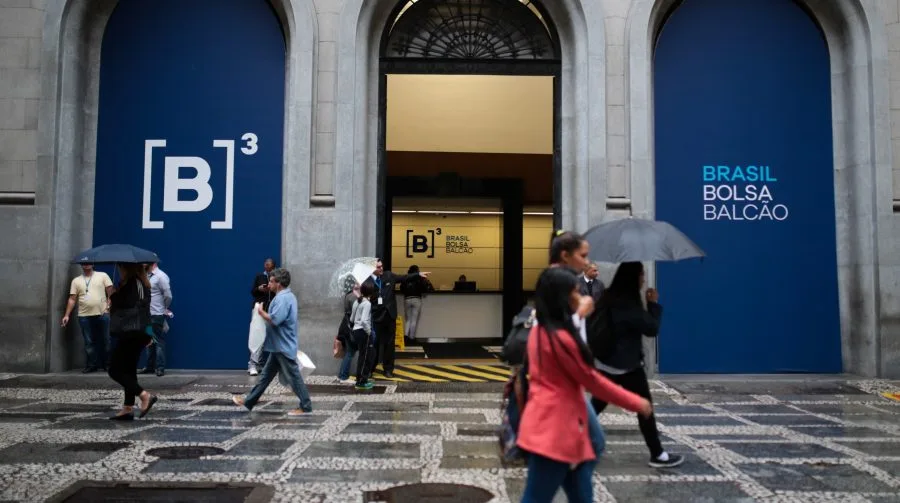Ibovespa, Brazil’s stock index, experienced a decline on Thursday, influenced by robust US employment data and Brazil’s PMI figures.
The US ADP employment report disclosed the creation of 164,000 new jobs in December, surpassing the projected 125,000.
As their recent meeting minutes indicated, this unexpected increase in job growth suggests investors should be cautious about the Federal Reserve’s potential interest rate cuts in March.
Concurrently, US unemployment claims fell to 202,000 last week, lower than the predicted 216,000. This reduction supports the view of a strengthening job market.

At 11 AM in Brasília, Ibovespa dropped by 0.46% to 132,230 points, reflecting investor reactions to these developments.
Meanwhile, the dollar rose to R$ 4.92, marking a slight increase of 0.08%.
On Wall Street, the S&P 500 futures declined by 0.04%, and the Nasdaq, influenced by the technology sector, decreased by 0.44%.
The Federal Open Market Committee’s minutes showed optimism about inflation trends, hinting at possible interest rate reductions in 2024.
However, they emphasized the necessity for a restrictive policy for some time.
In Brazil, the service sector’s PMI decreased from 51.2 in November to 50.5 in December, the lowest in three months.
Although still above the 50.0 mark, which distinguishes expansion from contraction, this indicates a slowing growth in the service sector.
Most traded stocks
Oil prices, influenced by tensions in the Middle East, rose with Brent crude increasing by 0.91%. The most traded stocks included Magazine Luiza, Petrobras PN, Hapvida, B3, and Cielo.
On Wednesday, Ibovespa closed with a minor gain, reflecting a volatile market.
Stocks such as Pão de Açúcar and Grupo Soma saw notable increases, while others like Azul and JBS experienced declines.
To date, the Ibovespa has encountered a cumulative decrease of 1.01% for the year.
This scenario highlights the interconnectedness of global economic indicators and their influence on financial markets.

